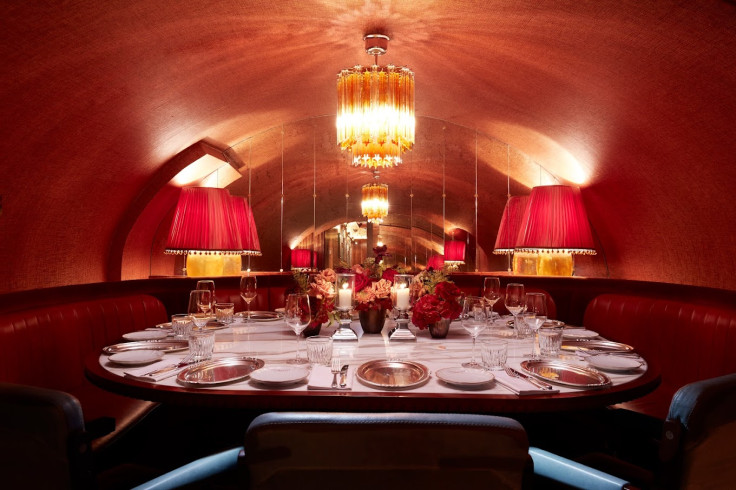Why Are Swanky London Restaurants And Hotels Charging Up To £100 For Reservations?

Luxury dining in London is becoming even more exclusive—not just due to the food, but because of the price of securing a table. A growing number of high-end restaurants are imposing reservation fees and minimum spend requirements, ranging from £25 to £100 per person. This move is a response to an increasing number of no-shows, social media influencers exploiting free meals, and bots reselling prime-time bookings.
Tackling 'Reservation-Squatting' and No-Shows
Restaurants such as Gymkhana, a two-Michelin-starred Indian hotspot in Mayfair, have taken drastic measures. Since November 2024, the restaurant has enforced a £100 minimum spend per diner to curb reservation abuses. The restaurant stated that "large volumes of bots and reservation resale websites" were targeting their bookings, making the policy necessary to secure serious diners.
Likewise, Hutong, located in The Shard, requires guests to commit to an £80 per person spend on Fridays and Saturdays, while St James's Chutney Mary has set a £60 per person minimum for dinner.
According to MW Eat, the group behind Chutney Mary, the policy was implemented to prevent customers from treating their high-end Indian cuisine as if it were a casual takeaway, where groups order a few mains and bulk up on inexpensive sides.
A Costly Industry Battling Inflation
London's hospitality sector is facing mounting financial pressures, including higher wages, rent increases, and rising food costs. According to Chris D'Sylva, owner of the Michelin-starred Dorian in Notting Hill, a £25 per head deposit was introduced to discourage patrons from making multiple reservations across different venues and only showing up at one.
He referred to the practice as "reservation-squatting" and explained that the lack of financial penalties made it too easy for diners to book tables they had no intention of honouring.
D'Sylva also pointed out that import costs have skyrocketed. "Premium ingredients from Japan now have to be flown around Russia, pushing costs even higher," he explained. Additionally, he noted that several of his regular customers had left the UK following Labour's non-dom tax crackdown, which has contributed to declining footfall.
The Rise of Influencer Culture and Free Meal Requests
Restaurants are also pushing back against social media influencers who attempt to dine for free in exchange for Instagram posts. D'Sylva revealed that he frequently declines these "collab" requests because influencers often order the bare minimum just to showcase a location online.
Matt Tucker, head of global restaurant booking platform Tock, echoed similar concerns. He acknowledged that while minimum spends are not always a welcoming message, they have become a necessary response to "influencer culture gone crazy."
Fighting Bots and Reservation Scalping
Restaurants are also grappling with automated bots that bulk-book tables, making it harder for genuine diners to secure a reservation. Tucker condemned this practice, calling bots "as bad as influencers." Some platforms, including Dorsia, a high-end restaurant and nightlife booking app, enforce minimum spend requirements on all bookings, with fees ranging from £50 to £150 in London.
Hotels Join the Trend
The reservation fee trend has extended beyond restaurants and into high-end hotels. Guests at Jean-Georges in The Connaught face a £50 per person minimum charge if they only wish to order drinks or dessert. Claridge's Foyer & Reading Room follows a similar policy. However, when asked for comment, the Maybourne Group, which owns both venues, declined to provide a statement.
Pushback From Some Restaurateurs
Not all restaurateurs are on board with these policies. Tomas Minkley, Chief Operating Officer of Bob Bob Ricard, famous for its "Press for Champagne" button, revealed that the restaurant had scrapped its minimum spend requirement. Minkley explained that the policy was "incompatible with today's economic climate" and that the restaurant prioritises value and customer loyalty over punitive charges.
A Necessary Change or a Barrier for Diners?
While minimum spend requirements help restaurants secure revenue and avoid empty tables, they also raise questions about accessibility. Critics argue that these fees risk alienating potential customers who may not want to commit to a high spend just to secure a seat. Others see it as a necessary adaptation to a changing industry.
As London's dining scene grapples with economic challenges, reservation abuse, and the pressures of social media culture, it remains to be seen whether more restaurants will adopt these measures—or whether customer pushback will force them to reconsider.
© Copyright IBTimes 2025. All rights reserved.




















